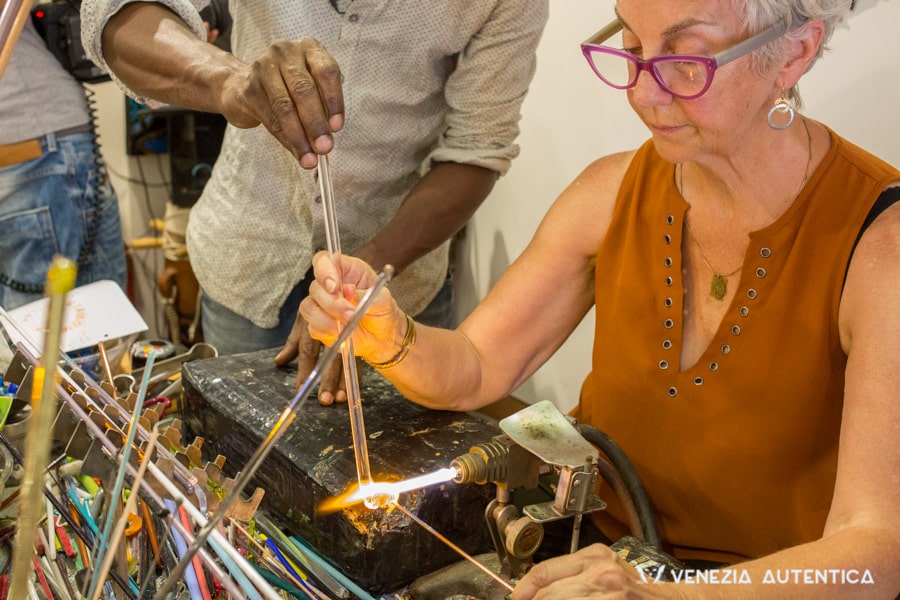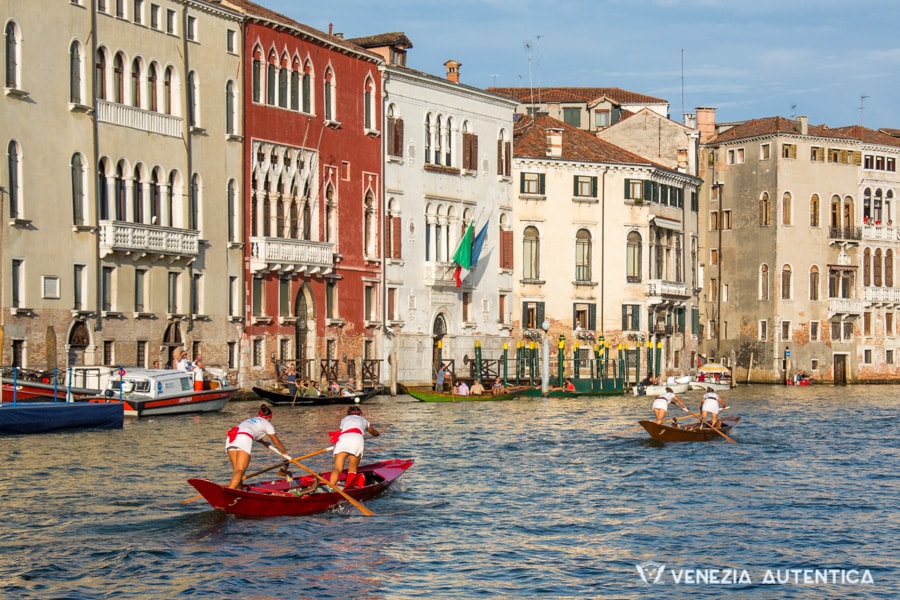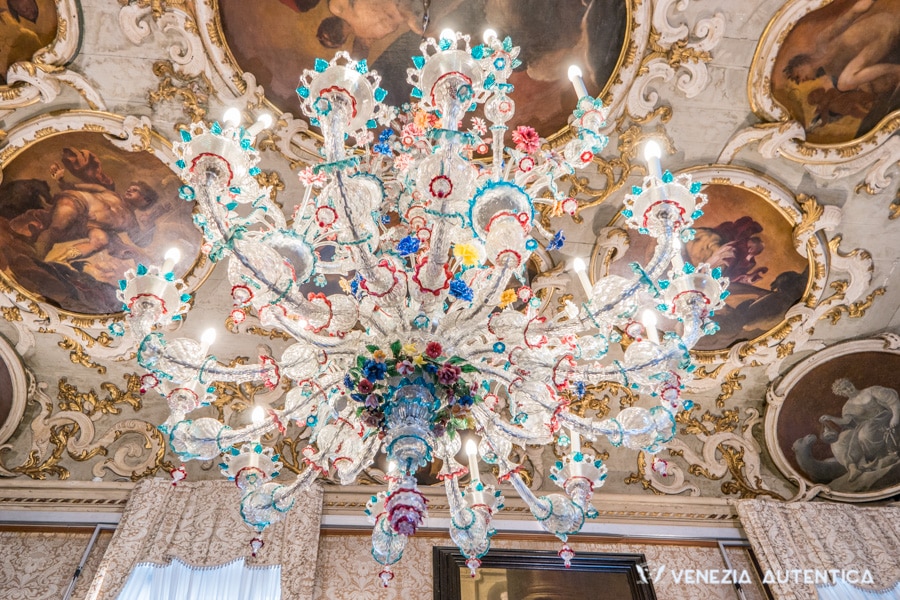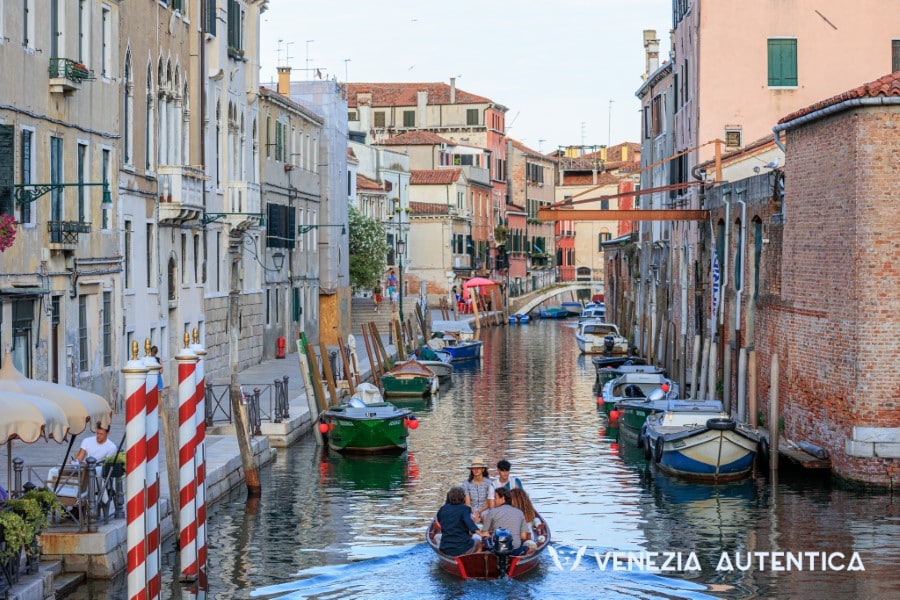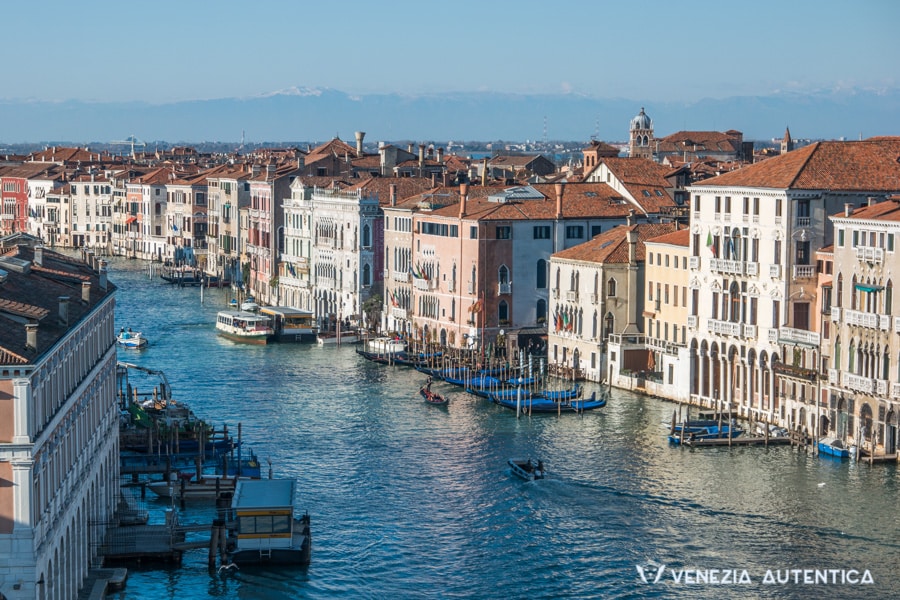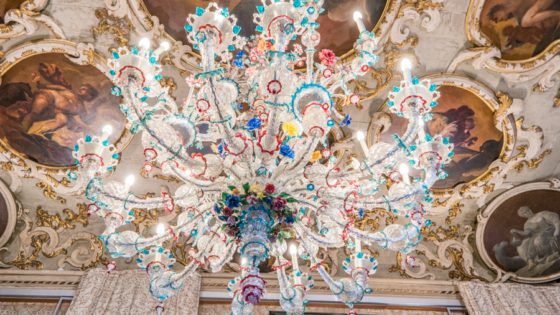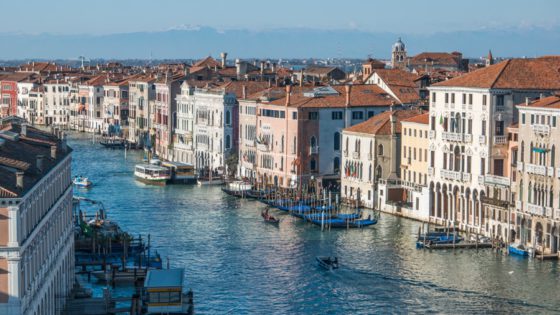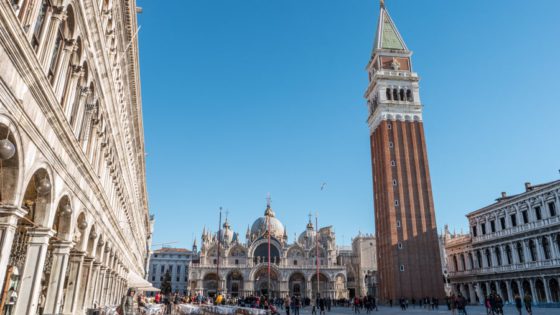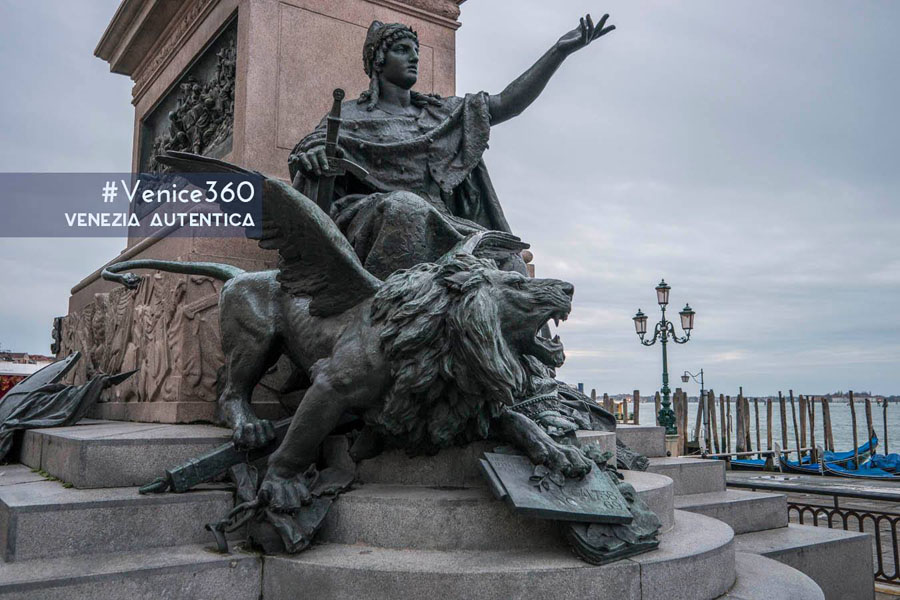
Long before the foundation of Venice, in 421 C.E., according to the legend, the most important pre-Christian god worshipped in the Veneto area, was a woman: Reitia.
Reitia was the goddess of Justice, Education, and Culture, celebrated for bringing social fairness, tolerance, and harmony to society. A model for both women and men, She was the precursor to the representation of Venice as a female.
Tiziano, Tintoretto, Veronese, all represented Venice as an extraordinarily beautiful woman, serene and majestic.
The common representations of the Republic of Venice portray it as an institution of Justice, harmony, power, progress, loyalty, and grace, qualities which were commonly associated with respected women.
Want more tips, tools and stories from Venice, Italy?
We're on a mission to make it easy and fun to discover and support the authentic Venice. Try our email and see for yourself!
In the history of Venice, women were saluted as an intelligent and creative force. They were welcomed in many aspects of life, going from culture to writing, from painting to music, from finance to education.
Unlike most of their peers, women in Venice had parental authority over their children and the right to nominate their teachers. They also had the right to autonomously make use of their belongings, to donate, and to freely express their last Will.
When women expressed their last Will, the husband was obliged to leave the room, in order not to put pressure on his wife.
Women could also manage cafes, shops, and companies without the supervision of men.
Nowadays, we take these rights seem as pretty obvious and granted. However, at the times of the Serenissima, this freedom was an incredible exception to the condition of women in Europe. In fact, women all around Europe were given no liberty and were in most cases a mere belonging of men.
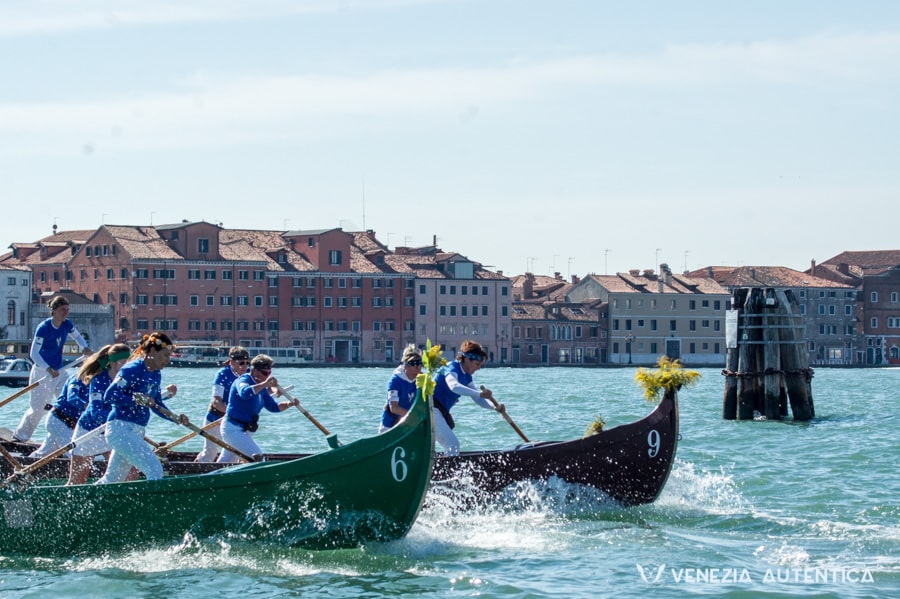
In a city of merchants, we could take as a fair indicator of gender equality the number of business ventures lead by women of any social class.
Luckily, the Republic of Venice used to document many aspects of life in Venice and abroad. Therefore, we can easily find detailed information about the work women were pursuing.
Unlike in most places at that time, the presence of women in the Venetian working life and society was exceptionally widespread. Indeed, women were virtually everywhere!
Some chose to work in the fields, others went for the sea. Some women founded cloisters and hospitals, while others founded institutions for people in need and pilgrims. There are information about women working as glass bottles makers, alcohol distillers, glass factory owners, nurses, singers, herbalists, “impiraresse“, “merlettaie“, etc…
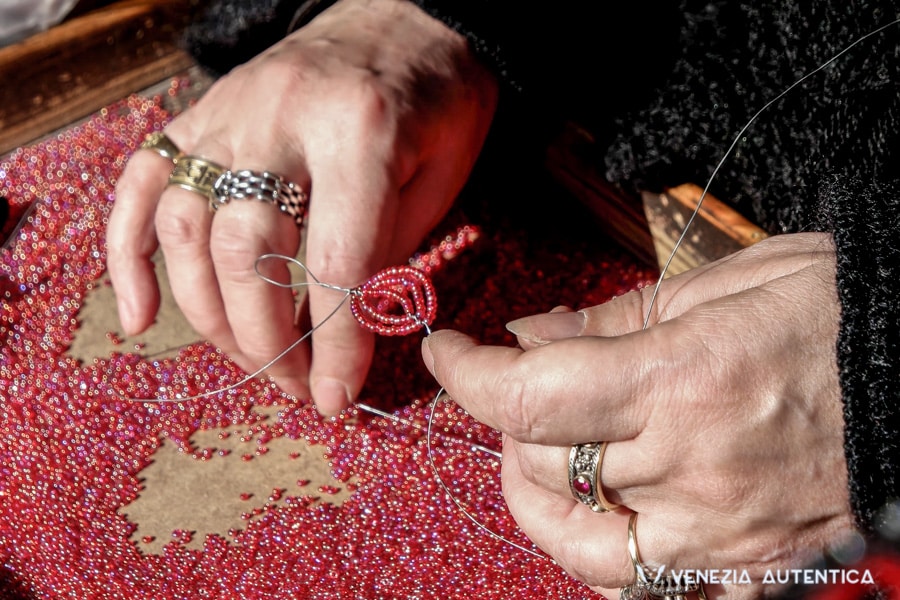
The condition of women in Venice was clearly not ideal and was far from that of modern western countries. However, Venetian laws did give Venetian women the chance to express their potential and achieve remarkable results. Proof of this is that some exceptional Venetian women earned fame and respect that is still talked about today!
Veronica Franco and Caterina Corner are probably the most known Venetian women. Veronica Franco was a literary and artistically very gifted courtesan, with a high education, known for her liaisons with the leading notables of her time including the King of France; Caterina Cornaro was the last Queen of Cyprus who was forced to abdicate in favor of the Serenissima.
Yet, Veronica Franco and Caterina Cornaro are far from being the only Venetian women whose life is worth talking about. In fact, many other women contributed to the glory of Venice, and make Venetians of today still very proud!
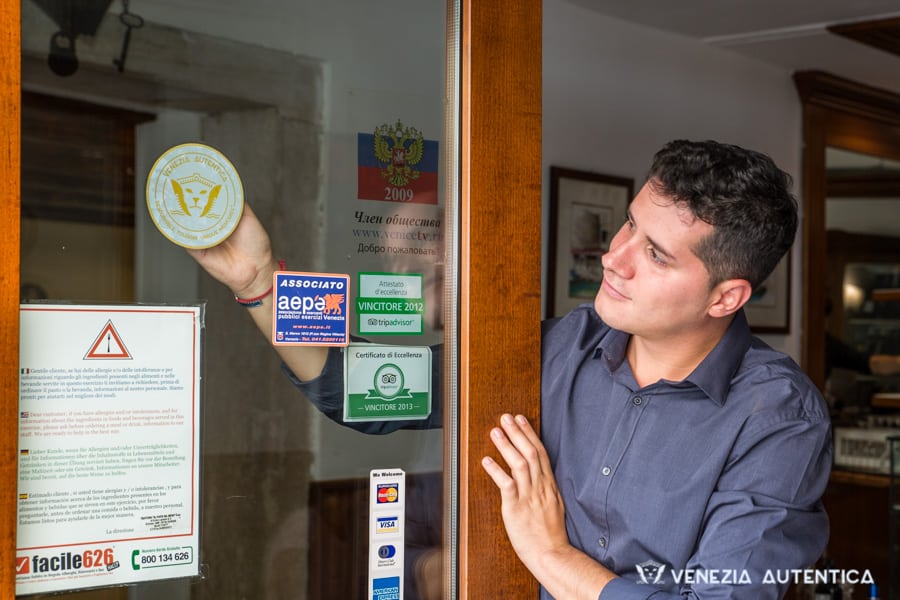
Unlock a discount at the best local businesses in Venice
Learn more about Venezia Autentica Friends' PassThe Venetian Woman Prodigy
One of the women Venetians are most proud of is Elena Lucrezia Corner Piscopia, believed to be the first woman in the world ever to graduate from University.
Piscopia was born in a noble family on 5 June 1646 in Venice, Italy. By the age of seven, she was already recognized as a prodigy. At 19, she was regarded as the most educated woman in Italy.
She was an incredible polymath who spoke seven languages fluently and had a vast knowledge of theology, philosophy, science, mathematics, astronomy, and grammar.
And no, that’s not where her talents stopped at. Piscopia was also a great musician excelling at playing the violin, the harp, the harpsichord, the clavichord… and, of course, she was also a singer.
Aware of her exceptional talents, her family insisted she study at the University of Padua. However, despite having all the credits to receive a degree in theology, the Catholic Church strictly forbade her from receiving it.
The University of Padua was forced to find a compromise and assigned Piscopia a PhD in philosophy instead, making her the first woman in the world to receive a doctorate degree, in 1678. She was 32 years old.
Today, Venice remembers this incredible woman with a plaque on the side of its city hall that celebrates Elena Lucrezia Corner Piscopia as the first woman in the world to graduate.
To be fair, Bettisia Gozzadini graduated well over 400 years before Elena Lucrezia Corner Piscopia in Bologna, on the 3rd of June, 1236.
Elena, however, was the first woman to get a decree at the end of a documented academic process that we can relate to today.
Exceptional Women in Venice
Despite a relatively small population, the liberty given to women in Venice proved to lead several of them to become known and respected for their remarkable achievements. Here are a few examples:
– Cassandra Fedele, already in the XV century, was offered a professorship in Spain and was renowned for her public debates with the professors of the University of Padova
– Gaspara Stampa, Poetess of the XVI century, is thought to be the greatest Italian poetess of all times.
– Moderata Fonte, a precursor of feminism. In the XVI century, she objected the common belief of women being inferior and she accused instead of the different education of men and women.
– Lucrezia Marinelli, who was granted higher education by her parents, who also did not pressure her into marriage or entering a convent, defended women rights and value, and is best known for her “La nobiltà et l’eccellenza delle donne co’difetti et mancamenti de gli uomini” (“The nobility and excellence of women, and the defects and lacks of men”) in response to a misogynistic pamphlet, in 1600.
– Barbara Strozzi (1619-1677), renowned singer and composer. She produced in excess of 125 works under her name, and possibly a compilation of motets with the works of another composer. Strozzi published eight volumes, making her the composer with the greatest amount of secular music printed of her era. She was foremost a composer of vocal chamber music and her works became essential in the development of opera or vocal music beyond the baroque period.
– Arcangela Tarabotti, a Venetian nun, in the XVII century wrote texts and held correspondence with political figures, centering the issues of forced enclosure and bullying.
– Rosalba Carriera, born in a modest family, became famous for her miniatures and got invited to paint the French royal family. Rosalba was then elected, in 1721, a member of the Academy by acclamation.
– Elisabetta Caminer founded the “Giornale Enciclopedico” in 1773. Because of censorship, print shops were refusing to publish Elisabetta’s groundbreaking magazine, therefore she decided to open her own print shop in 1779 and continue printing.
– Gioseffa Cornoldi founded “La donna galante ed erudita”, “The elegant and educated woman”, the first magazine for women, in 1786.
– Maddalena Montalban Comello: took an active part in organizing the Venetian resistance in 1848 against Austria and was arrested in 1863 for her public request of liberation from Austria to Giuseppe Garibaldi .
– Adele Della Vida Levi founded the first Italian Kindergarten in 1859 and promoted public education with no economic or religious discrimination.
– Gualberta Alaide Beccari in 1861, at age 16, launched “Woman”: a biweekly published journal which promoted women’s rights and supported pacifist causes.
–Ida D’Este was arrested during WWII and sent to a concentration camp and tortured for her activity of conspiracy in the CNL, the center of national liberation. After her release, she actively took part in the Italian politics to defend women from abuses.
Last but not least, we would like to mention the legendary rower Maria Boscolo, who won her first Regata Storica as a teenager in 1740 and her last one in 1784, 44 years and 4 children later.
The first public women regatta took place in 1481 and ever since the beginning, women champions were as important, admired and rewarded as their male counterparts, which at that time were real celebrities!
Today, the respect shown towards women rowers is sadly very different. In fact, since the re-introduction in 1977 of the “women” class in the Regata Storica, the most important regatta in Venice, prizes handed out to women in public regattas have a value that is tenfold lower than that of prizes handed out to men.
In our opinion, it is embarrassing and it makes us angry that something like this happens in Venice, a city that once could be proud for the respect it did show to women, in a time in which they were mere belongings of men.
If you liked this article and want to know more about Venice, or would like to find all the resources to plan your next trip to the Serenissima, make sure to check out these links:
I'm visiting Venice. Why should I follow your recommendations?
The way you visit Venice has an impact both on the quality of your experience and on Venice itself. Chilling, exploring, shopping, eating and drinking where the locals do, can make a huge impact both on the memories you bring home and on the local economy and community.
Home >> Venice and Venetians >> Venice Explained >> You’re Here
Facts, Curiosities, History of Venice, Italy
More about life in Venice, Italy

